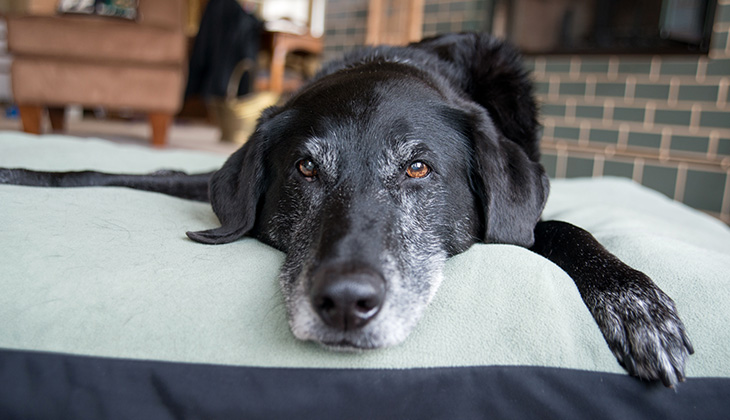What’s wrong with older dogs anyway?
Chris Hogan, 7th March 2016, Pet
Dogs are getting more and more popular but at the same time rescue charities all over the land are inundated with dogs waiting to be re-homed, particularly more mature dogs. Wouldn't it be great if there were organisations dedicated to rehoming older dogs?

Well, the good news is that there are plenty of those organisations, although the reality is that most people want a dog from a very young age. The vast majority of dogs waiting to be re-homed aren't puppies, and people tend to be more wary of adopting dogs in case they have have developed undesirable character traits from being abused or neglected. This is hardly the dog's fault, but it means new owners have to be prepared to take them on.
Where to find them
Older dogs are often put up for adoption because owners can't cope with them, or their circumstances change. If you feel you could take on an older dog then try the Oldies Club, which co-ordinates with rescue centres around the UK to list older dogs for adoption.
Battersea Dogs Home is one of the best-known UK dog charities and its website has a great deal of advice about adopting a dog. The same is true of the Wood Green animal charity in Cambridgeshire, which has a page of information specifically about adopting older dogs.
A mixed bag
The other things that makes adopting an older rescue dog problematic is that it's unlikely that a dog at a Blue Cross or similar centre will be a pedigree, they're more likely to be a mixture. Fortunately for people who want a particular type of dog, there are many charities that specialise in individual breeds.
Breed specific charities
People can help older dogs in need, take a load off a charity and save money into the bargain by rehoming a dog that's been put up for adoption rather than buying a puppy.
Here's just a small selection of those organisations:
There's also a specific page at the Kennel Club website where you can search for more breed contacts.
Note that often these older dogs need new owners not because they've been 'rescued' as such, but because of other situations. Divorces, career commitments, perhaps illness or injury in a family are all examples of things that force change on owners.
But ....
There are well over a thousand individual operations, looking after more than 150 specific breeds. Most are volunteers so a huge number don't have websites; just a name, phone number and maybe an email address.
So looking at websites will therefore only turn up a fraction of the organisations that can help the quest. Instead, Google the breed you're interested in with 'rescue', and you should find a number of people who can help.
Those contact details will change regularly though, so be prepared to make a couple of calls to track down the right person.
Finally
To finish, here's blog that pulls together requests from lots of different shelters. It also offers a lot of advice about finding and taking on older dogs and rescue dogs, even advising people who think they should put their dog up for re-homing, to help them to make sure it's the right decision.
If do you decide to rehome an older dog, we wish you all the best.
Related articles
Monthly Newsletter
Not signed up to our monthly newsletters and would like to keep up to date with a variety of products? Select from below which products you would like to receive.
No Product! Please select a product